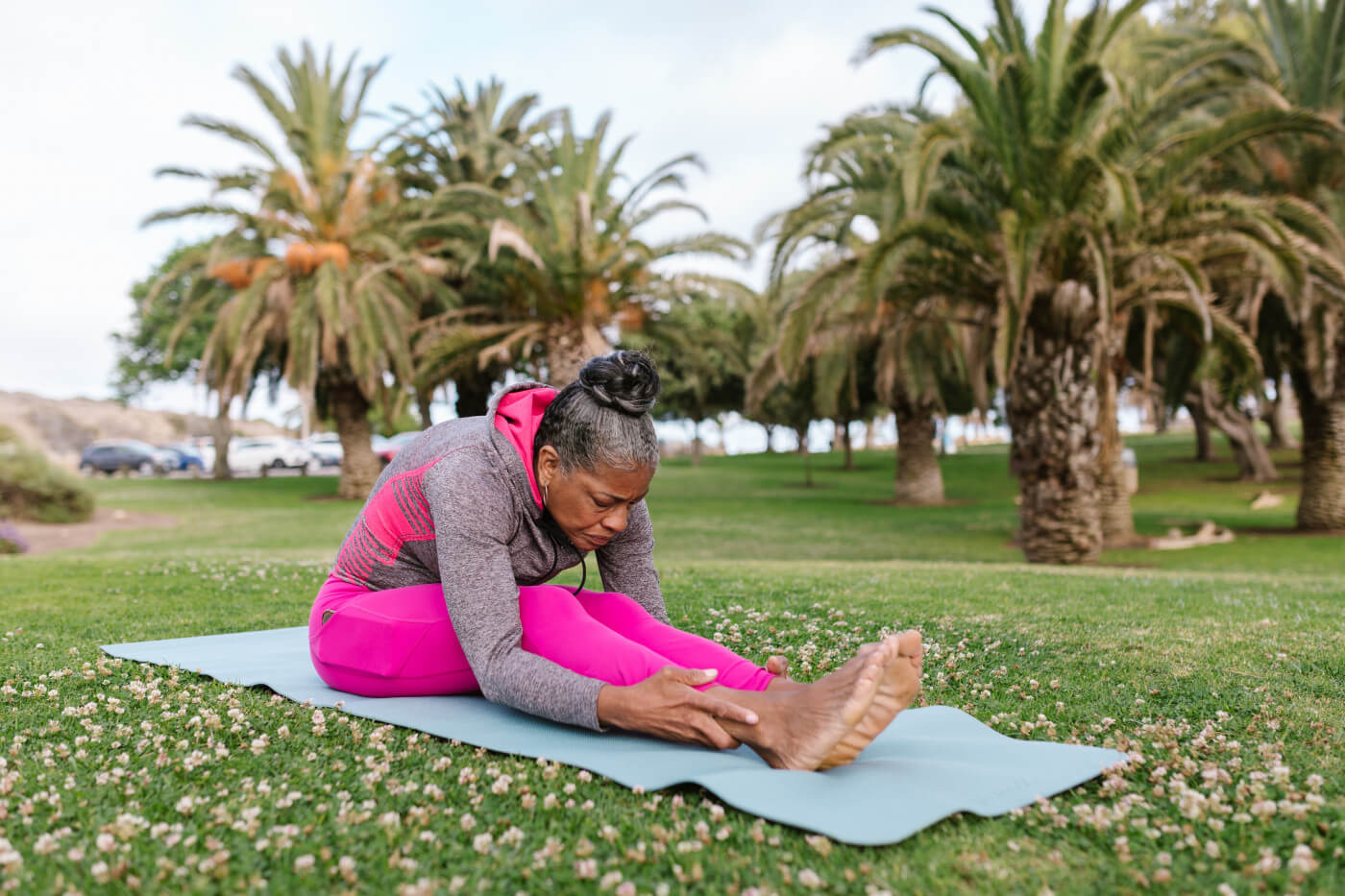
Lifestyle Support for Menopause
Our lifestyle and daily habits can have a huge impact on our quality of life and our ability to stay healthy, especially our lifestyle in menopause. For women going through menopause, balancing all the facets of adult life, managing stress, and tending to our physical and mental health can feel like an epic feat.
Thankfully, there are many ways to improve health and reduce menopause symptoms with some simple and manageable lifestyle habits.
BEST DIET DURING MENOPAUSE: WHAT TO EAT
One of the most transformative ways to improve your core health is by nourishing your body. Food can be incredibly medicinal or it can sabotage your health. What you put in your body is what fuels it.
For women experiencing severe hormone imbalances during menopause, it is important to focus on a whole foods diet that avoids fast food, processed sugar, spicy food, caffeine, alcohol, additives, chemicals, and empty carbohydrates. Not only will this help reduce your symptoms, you are likely to notice healthy weight loss, improved energy, more stable moods, and a better sex life.
Load up your diet with colorful, vibrant, nutrient-rich vegetables and fruits. These are packed with antioxidants that relieve inflammation and stress, hydrate your tissues, and slow the effects of aging.
Menopause superfoods:
Cruciferous vegetables (broccoli, kale): contain indole-3-carbinol to support estrogen levels
Antioxidants (blueberries, green tea): boost immune system and reduce inflammation
Beans, whole grains, nuts, seeds: high fiber, regulate hormones and manage weight
Olive oil, avocado, nuts, salmon: age-fighting omega-3 fatty acids and improve mood
Water: hydration is imperative during menopause as many women lose fluids from sweating
EXERCISE: HOW TO STAY ACTIVE DURING MENOPAUSE
Movement is crucial for overall health. While exercise is a typical recommendation for those who are looking to lose weight or prevent osteoporosis, the benefits of staying active have a far wider reach. Incorporating regular exercise into your lifestyle can greatly affect menopause symptoms.
Exercise helps to relieve stress and mental tension, just as it helps to improve our body’s physical form. Women who suffer anxiety, depression, brain fog, irritability, and anger during menopause can find great relief in a regular exercise routine.
Beneficial Activities:
Yoga: Yoga builds both physical and mental strength, flexibility, and mindfulness
Walking: maintains circulation and lymphatic flow while relieving stress and tension
Stretching: a twice-daily stretch (in the morning and evening) maintains good posture
Weight-bearing exercises: help build bone strength and prevent fractures
MENOPAUSE AND MENTAL HEALTH: FINDING JOY IN MENOPAUSE
Each era of life has its obstacles, but many women find menopause to be particularly challenging. To take control of your emotions and support your mental health, consider forming some new habits:
Creativity: Menopause is a great time to dig up old forgotten creative hobbies. Self-expression is a helpful tool in managing life’s changes and embracing the present moment. A particularly helpful habit is journaling – writing down your thoughts, goals, fears, or annoyances can help release pent-up emotions and get them out on paper, rather than brewing in your mind.
Laughter: They weren't lying when they said laughter is good medicine. Studies show that laughing can relieve stress and even boost the immune system. Make time for a funny movie or even look up a few menopause jokes every day!
Community: Our emotional health relies on the power of our community. Having positive relationships with our friends, family, and neighbors can make a big difference during the ups and downs of life in general and menopause. Reach out to a menopause support group if you need extra care and solidarity.
Rest: Just as activity and exercise are important for mental health, so is rest. Be sure to prioritize your sleep and take breaks. Quality sleep balances hormones and supports the brain. Getting the right amount for your body every night, and solidifying a sleep schedule can make all the difference!




